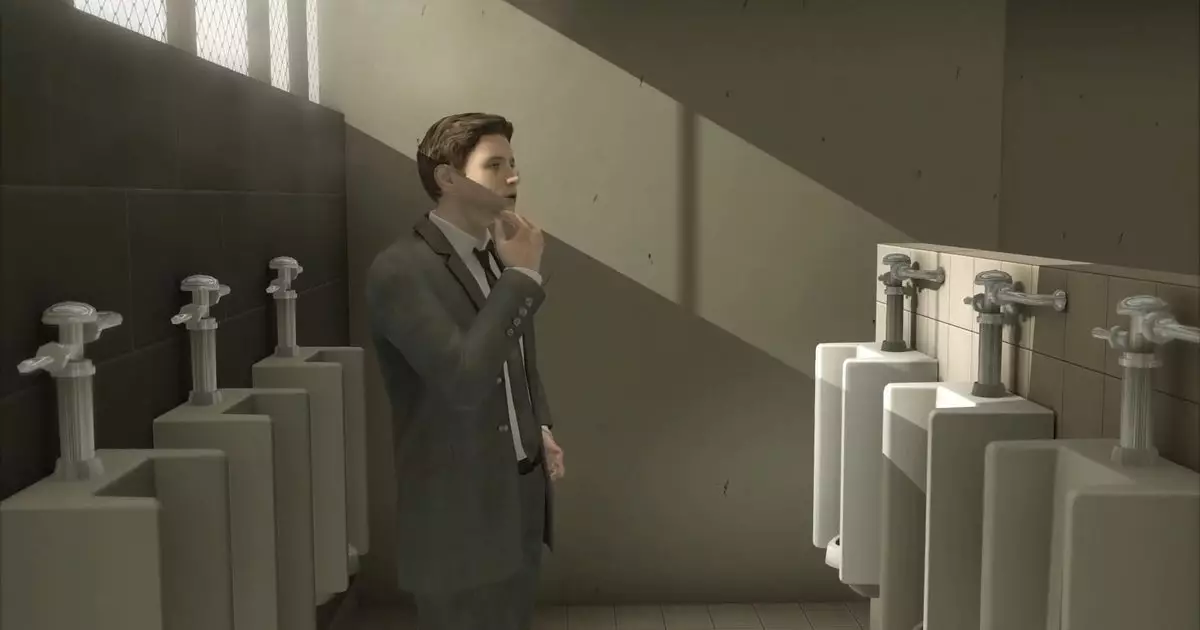In the current digital landscape, YouTube serves as a treasure trove for content that ranges from the profoundly educational to the bizarrely niche. Among the many genres vying for viewers’ attention, one stands out for its uncanny ability to infuse the mundane aspects of life—specifically video games—with a poetic lens. This genre focuses on creators who obsessively fixate on minor details in blockbuster games, unveiling layers of humor and insight that may initially seem trivial. The fascination surrounding such peculiar content invites us to explore what resonates with audiences in an unexpected manner.
Take, for instance, the enduring popularity of videos that examine seemingly insignificant elements within major game franchises. While some gravitate towards in-depth critiques or intricate lore explorations of iconic titles, others find joy in dissecting aspects that may initially appear trivial. David Cage’s “Heavy Rain” serves as a prime example, with one YouTuber, Allie Meowy, directing her focus on an aspect few would typically consider worthy of analysis: the numerous opportunities for characters to relieve themselves. It’s here where admiration for the absurd emerges. The act of unwinding a bathroom scene into a detailed critique may sound peculiar, yet it brilliantly illustrates how dissecting the mundane can elevate the conversation surrounding video games.
By closely analyzing actions as simple as a character using the bathroom, creators like Meowy reveal layers of cultural and societal commentary that run deeper than one might assume. In her video, there’s a strange sense of reverence for a feature most would overlook, showcasing how gaming features that blend honesty with absurdity can become a medium for deeper reflection on narrative mechanics and character development.
As Meowy delves into “Heavy Rain,” she meticulously counts the instances of the characters engaging with bathroom facilities. While at first glance, the humor lies in the sheer absurdity of the project, it gradually turns into a commentary on narrative design itself. Herein lies an essential aspect of video game analysis: exploring how seemingly trivial actions like urination can contribute to world-building and character depth. For instance, one of Meowy’s observations highlights that the only female character flushes the toilet automatically, while male counterparts require player agency to do so. This small detail encapsulates larger themes around gender representation and the intricate ways video games enable—or hinder—immersion through choices.
The unassuming proposition that players can limit their engagement with bodily functions indeed questions the boundaries of player agency. Is it not fascinating to consider how immersion can be disconnected from the gameplay experience? Much of this nuance may fly over the heads of typical gamers, yet it resides at the core of Meowy’s analysis, raising critical inquiries about player experience and intention in game design.
What beautifully unfolds in this niche analysis isn’t just another comedic look at a poorly-executed narrative; it offers a comprehensive break down of “Heavy Rain’s” convoluted storyline through the lens of its often hilarious absurdities. With over 150 references to the word ‘piss’ in her commentary, Meowy weaves an unexpectedly informative tapestry that presents insights about a game that is infamous for its troublesome narrative decisions.
For newcomers or those wary of the verbose nature of gameplay, such whimsical analyses act as an engaging entrance to the intricate web of “Heavy Rain.” They circumvent the normal tread of playing a game entirely while still providing a profound understanding of its elements—those mundane moments transformed into both humor and inquiry. Just as her video transcends a simple outline into a roadmap of the major plot points, it showcases how one can learn about human behaviors and game design intricacies through a seemingly trivial lens.
In the vast expanse of YouTube’s gaming content, the genre that focuses on hyper-fixated exploration of insignificant details invites audiences to rethink how they engage with games. Rather than simply enjoying an intricate plot or sharp mechanics, viewers are encouraged to take a different approach—a playful analysis imbued with humor and introspection. As demonstrated by Allie Meowy’s focused critique, it’s not merely about counting instances of digital urination but rather appreciating how even the most mundane elements can become vessels for broader discussions about our favorite interactive experiences. Even if gaming might have an inherent absurdity, perhaps it is within this charm that the most profound insights take root. So, next time you find yourself distracted by the minutiae, remember that in this dizzying realm of digital creativity, everything—even when diluted to ridiculous levels—holds the potential for deeper understanding.


Leave a Reply